News
Bamidele canvasses strategic investments in education to produce global billionaires

Senate Leader Opeyemi Bamidele has called for greater investment in education by governments, corporate organizations, and philanthropists to develop global billionaires and industry leaders. Speaking at Ekiti State University’s 29th convocation, where he received an honorary Doctor of Law (Honoris Causa), Bamidele emphasized education’s role in national development and economic transformation.
He noted that developed nations in Asia, Europe, and North America have effectively used education to drive socio-economic progress. He urged Nigeria to adopt similar strategies by creating a competitive learning environment and making sustained investments in young people.
Bamidele highlighted how world-renowned entrepreneurs, including Elon Musk, Jeff Bezos, Mark Zuckerberg, and Larry Page, benefited from well-structured educational systems. He stressed that Nigeria could achieve similar success with the right policies and support.
Ekiti State University Vice-Chancellor Prof. Ayodele Joseph commended Bamidele’s contributions to the institution, citing projects such as hostels for medical students, a mini stadium, and an FM radio station. He also credited the Senate Leader for facilitating an increase in the university’s monthly subvention from N260 million to N410 million.
News
Trump imposes 14% tariff on Nigerian exports to US

Washington, D.C. – U.S. President Donald Trump has announced a 14% tariff on exports from Nigeria to the United States, marking a significant shift in bilateral trade relations. The decision, revealed during a “Make America Wealthy Again” event at the White House’s Rose Garden on Wednesday, aligns with Trump’s broader strategy to rebalance global trade and address what he describes as unfair practices.
The U.S. administration justified the move by citing an ongoing trade imbalance, pointing out that Nigeria imposes a 27% tariff on U.S. exports. Trump’s team argues that such disparities have harmed American businesses and consumers for years.
Beyond Nigeria, Trump unveiled a sweeping tariff policy that includes a baseline 10% tariff on all U.S. imports, affecting over 50 countries, including key economic players like China, the European Union, India, and Japan.
African nations were not spared from the policy shift. Several countries, including Algeria (30%), Lesotho (50%), Mauritius (40%), Kenya (10%), Namibia (21%), Ethiopia (10%), Ghana (10%), and South Africa (30%), will also face new tariff impositions.
During his speech, Trump emphasized that the policy aims to protect American industries and ensure global trade adheres to “fair” rules.
“This is one of the most important days in American history,” Trump declared. “We will supercharge our domestic industrial base, pry open foreign markets, and break down trade barriers. More production at home will lead to stronger competition and lower prices for consumers.”
The announcement has already triggered concerns among global markets, with analysts warning of rising trade tensions and the possibility of retaliatory measures from affected nations.
As the tariffs take immediate effect, observers anticipate diplomatic negotiations between Washington and its trade partners, including Nigeria, which may seek to mitigate the impact of the new levies.
News
Lagos Traffic Chaos: FG Orders Reopening of Independence Bridge

Motorists heading to Lagos Island on Monday experienced severe gridlock following the closure of the Independence/Mekwen Bridge inbound Marina/CMS for repairs. The Federal Government had earlier announced that the bridge would remain closed until the end of May for essential maintenance.
The Federal Controller of Works in Lagos, Mrs. Olukorede Kesha, stated that the closure would impact traffic from Ahmadu Bello Way and Adeola Odeku towards Marina, Eko Bridge, and Onikan. As a result, commuters faced long delays, with traffic congestion stretching from Lekki through Victoria Island to Falomo Bridge.
Many road users expressed frustration over the situation. A motorist, Gbenga Aduloju, lamented that he left the Island at 2 p.m. and was still stuck in traffic by 4 p.m., wondering if this would be the situation for two months. Another commuter, Esther Alfonso, shared her ordeal, saying a journey that usually takes 15 minutes took almost two hours. Some commuters called on the Federal Government to reconsider the closure, arguing that the repairs had yet to begin, yet the road was already closed. A commercial driver suggested allowing one-way traffic to ease congestion, urging the Lagos State Traffic Management Authority (LASTMA) to provide better solutions.
Commissioner for Transportation, Oluwaseun Osiyemi, outlined alternative routes for motorists. He advised that during the closure, sections of the road from the National Open University of Nigeria through Bonny Camp Bridge to Independence Bridge would be inaccessible. However, the service lane from Ahmadu Bello Way to Ozumba Mbadiwe would remain open. Motorists heading to Victoria Island from Ahmadu Bello Way should use Ozumba Mbadiwe Avenue, Akin Adesola Street, and Falomo Roundabout to reach Obafemi Awolowo Road. Those heading to the Third Mainland Bridge should take Ozumba Mbadiwe Avenue to Akin Adesola Street, then Alfred Rewane Road to Osborne Road and onward to Ring Road. Motorists traveling to Inner Marina and CMS should divert to Ozumba Mbadiwe Avenue, Akin Adesola Street, Falomo Roundabout, and Obafemi Awolowo Road before connecting J.K. Randle Road or King George V Road. Osiyemi reassured residents that LASTMA officials would be deployed to manage traffic flow throughout the period.
Following the widespread outcry, the Minister of Works, Senator David Umahi, ordered the immediate reopening of the Independence Bridge. The Federal Ministry of Works clarified that while repair works are necessary, they will be carried out at a later date to minimize disruptions. The Ministry expressed regret over the inconvenience caused and appealed for public understanding.
News
FG boosts power generation by 2,000mw in 2 years — Minister

Minister of Power, Adebayo Adelabu, has revealed that Nigeria’s power generation has increased to 6,003 megawatts, marking significant progress under President Bola Tinubu’s administration. He stated that while it took nearly 40 years to move from 2,000MW in 1984 to 4,000MW in 2022, the country achieved the latest increase within two years.
Adelabu made this known while receiving a delegation from the Nigerian Society of Engineers (NSE), led by its President, Margaret Oguntala, during a courtesy visit to his office in Abuja. He attributed the recent progress to deliberate efforts by the current administration to prioritize the power sector as a key driver of economic growth.
According to a statement by the minister’s spokesperson, Bolaji Tunji, the meeting focused on strategic partnerships, mentorship opportunities, and the NSE’s role in providing technical advisory support to the ministry.
The minister expressed concerns over persistent power sector challenges despite Nigeria producing a large number of engineers. He urged the NSE to take a more active role in addressing infrastructural deficiencies, grid collapses, and overall inefficiencies in the power system.
“We have so many engineers in Nigeria, yet our power infrastructure remains unreliable. The NSE was established in 1958, yet we still experience grid collapses. What are our engineers doing? It shouldn’t be like this,” Adelabu stated.
He challenged the NSE to ensure its members contribute meaningfully to improving the country’s power infrastructure, emphasizing the need for collaboration with the ministry.
The minister also stressed the importance of continuous training for engineers, citing the need to revive rigorous training programs last seen during the era of the defunct National Electric Power Authority (NEPA).
“The power sector is unique, and training cannot be neglected. The last batch of well-trained engineers came from the old NEPA. We must return to that era of rigorous training to develop competent professionals,” he said.
He encouraged the NSE to partner with institutions like the National Power Training Institute to enhance skills development in the sector.
In response, NSE President Margaret Oguntala assured the minister that the society would take up the challenge. She reaffirmed NSE’s commitment to contributing technical expertise, fostering innovation, and enhancing capacity development to improve the country’s power infrastructure.
The meeting underscored the need for stronger collaboration between the government and professional bodies to address Nigeria’s power sector challenges.
-
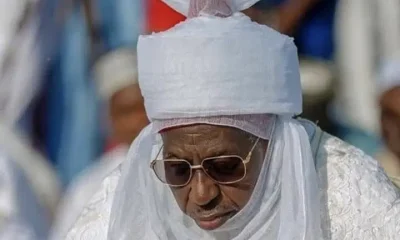
 News18 hours ago
News18 hours agoDignitaries Pay Final Respects to Late Galadiman Kano, Abbas Sunusi
-

 News18 hours ago
News18 hours agoCourt restrains Abia govt from appointing new judges
-
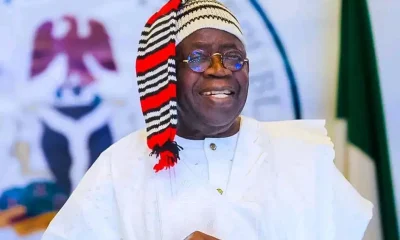
 News18 hours ago
News18 hours agoTinubu lauded for removing Kyari, Akinyelure, NNPC board
-
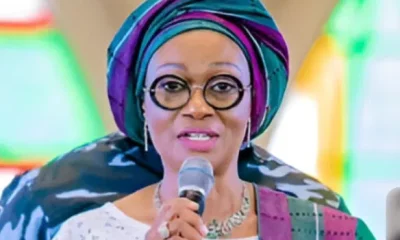
 News18 hours ago
News18 hours agoTinubu calls for support for people living with autism
-
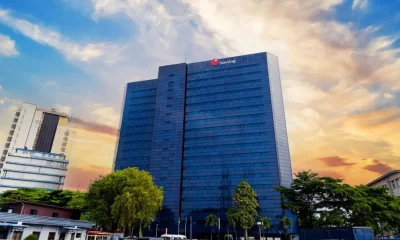
 Business18 hours ago
Business18 hours agoSterling Bank stops online transfer charges, urges others to follow suit
-

 Foreign18 hours ago
Foreign18 hours agoSeeing China through its bridges: a tapestry of time and innovation
-

 Foreign18 hours ago
Foreign18 hours agoWorld’s supermarket” Yiwu launches new trade reforms
-
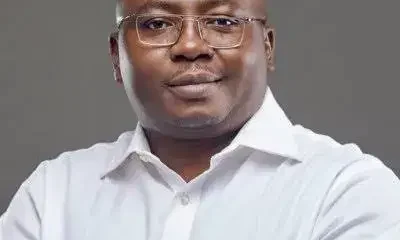
 News51 mins ago
News51 mins agoFG boosts power generation by 2,000mw in 2 years — Minister







